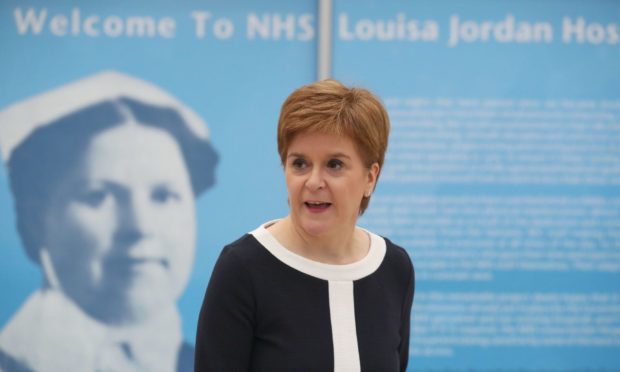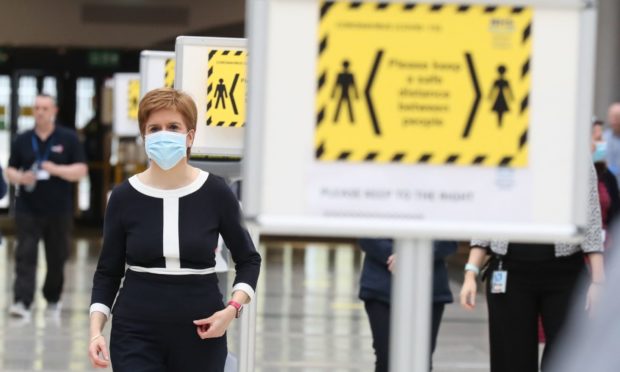Nicola Sturgeon has insisted that her key NHS spending pledge is only a “backstop” and funding could be even higher than proposed by the SNP.
The first minister said it would not be possible for Scotland to spend less money on health than the rest of the UK, under the party’s manifesto commitments.
The SNP leader unveiled the party’s spending plans last week, including a headline commitment to increase health funding by at least 20% in the next parliament.
Speaking on Sky’s Sophy Ridge on Sunday programme, Ms Sturgeon was asked about an analysis by the Institute of Fiscal Studies (IFS), which suggested it could be a lower amount that forecast in England.
She said: “The IFS has looked at the position in England up to 2023, that’s the timeframe in which the UK Government has made a commitment in England.
“The commitment I’ve made for the next parliament takes us up to 2026, so it’s apples and pears to make the comparison.”
Ms Sturgeon suggested the manifesto commitment would be the minimum increase under an SNP government.
“The other point, and this is a key point, is that in a sense the commitment I have made is a backstop,” she said.
“Whatever the budgetary position that the UK Government delivers for Scotland, we will deliver that transformational 20% increase in health funding.
“But if the UK Government exceeds that, and there is extra money comes from the Barnett formula, we will commit that to the NHS as well.
“So by definition, we cannot be spending less than the UK Government does in England, because the commitment we’ve made is the backstop and if the Barnett formula allows us to go further, we will go further.”
So by definition, we cannot be spending less than the UK Government does in England, because the commitment we’ve made is the backstop and if the Barnett formula allows us to go further, we will go further.”
Ms Ridge also challenged the SNP leader on Scotland’s drug deaths, which are the highest in Europe.
Ms Sturgeon said she would not attempt to “defend the indefensible”.
“We have tried to tackle the drugs deaths but we can’t look at the figures for the numbers of people dying and conclude that what we have done has been enough, or has been effective enough,” she said.
“Over the past few months we’ve done a number of things to make a concerted attempt to turn this around.
“So firstly, I have appointed a dedicated minister with responsibility for this, reporting directly to me.
We have tried to tackle the drugs deaths but we can’t look at the figures for the numbers of people dying and conclude that what we have done has been enough, or has been effective enough.”
“We have set aside a budget over the next few years of £250m to specifically support initiatives to tackle the drugs crisis and drugs deaths.
“That is supporting more community work, it is supporting greater provision of rehabilitation beds, including residential rehabilitation, and aftercare support, faster access to treatment, so that if someone comes forward looking for treatment they get that quickly and aren’t having to wait for that.
“So there is a whole package of policies and interventions now that we are taking forward to turn it around, because to be frank it is not acceptable.”

